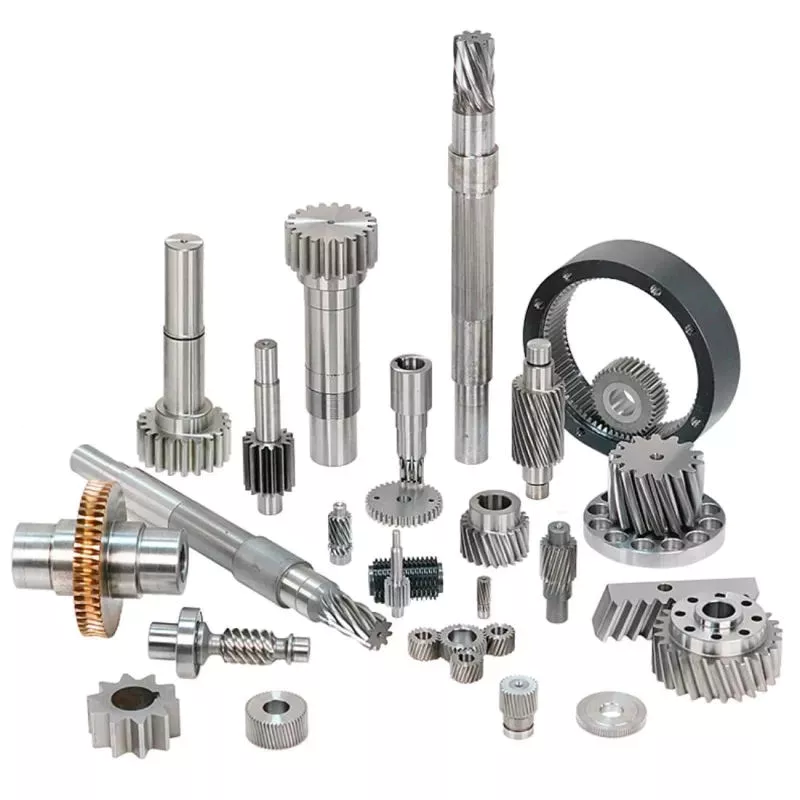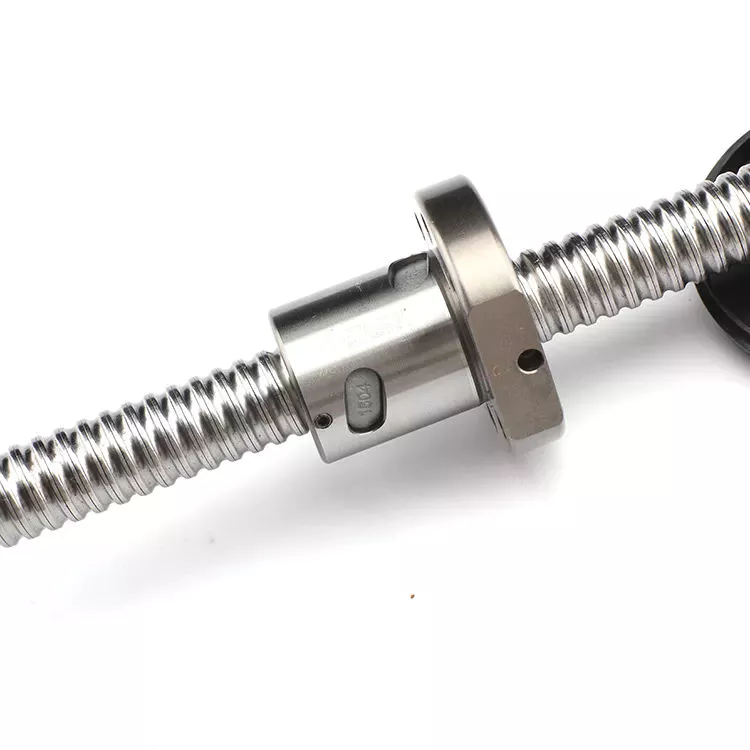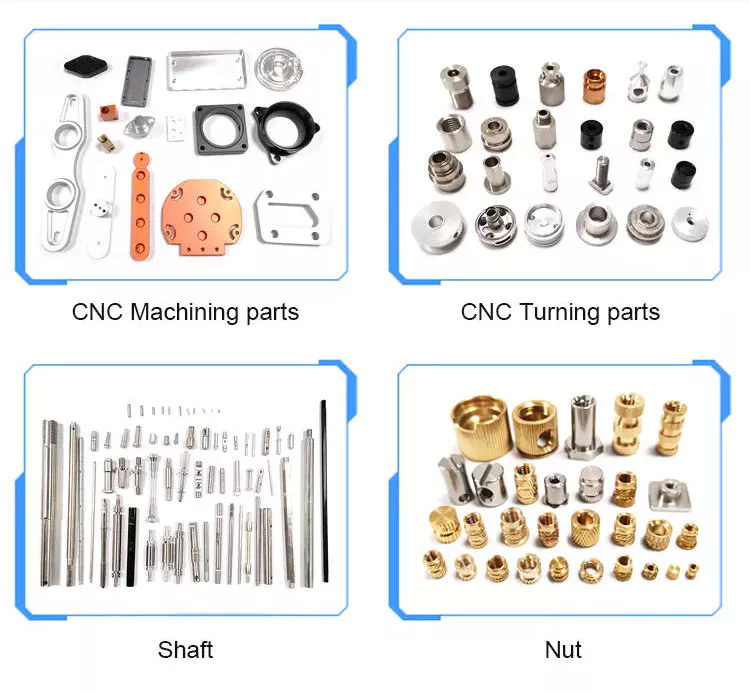Product Description
High Quality Cheap Dental External Thread Dowel Threaded Studs Pins
| Product Name | Threaded Studs Pins |
| Available Material | 1.;Stainless Steel:; SS201,; SS303,; SS304,; SS316,; SS416,; SS420,;etc.; |
| 2.;Steel:;C45(K1045);,; C46(K1046);,;C20,;etc | |
| 3.; Brass:;C36000 ( C26800);,; C37700 ( HPb59);,; C38500( HPb58);,; C27200CuZn37);,; C28000(CuZn40);,;etc.; | |
| 4.;Bronze:; C51000,; C52100,; C54400,; etc.; | |
| 5.; Iron:; 1213,; 12L14,;1215,;etc.; | |
| 6.; Aluminum:; Al6061,; Al6063,; etc.; | |
| 7.; Carbon steel:;AISI1006,;AISI1571,;AISI1571,;etc.; | |
| 8.;Alloy steel:; SCM435,;10B21,;etc.; | |
| Grade | 4.;8,;5.;6,;6.;8,; 8.;8,; 10.;9,; 12.;9,; A2-70,; A480 |
| Standard | ANSI / BS / DIN / GB / ISO / JIS / BSW |
| Drive Type | Word/Triangle/Interior Angles Quarter/Cross/M Word/Flower/Cinquefoil/Flower Word/Hexagon/Special Shap |
| Head Type | Pan/Hex/Truss/Oval/Wafer/ Countersunk,;etc |
| Surface Treatment | Zn-plated,;ni-plated,;tin-plated,;chrome plated,;passivated,;sandblast and anodize,;chromate,;polish,;electro painting,;black anodize,;plain,;H.;D.;G,;etc.; |
| Certificate | ISO9001:;2015/SGS/ROSH/IATF16949:;2016 |
| Heat Treatment | Tempering,;Hardening,;Spheroidizing,;Stress Relieving.; |
| Application | Mechanical equipment,;tele-communications equipments,;robot,;computer cases and cabinet,;electrical appliances |
| Quality Control and Detection Equipment | Our QC department work is inspection and final inspection.; We promise you as below:; |
| 1.; Check the raw material before the production.; | |
| 2.; Have inspection during the production.; | |
| 3.; Make 100% inspection before the shipment.; | |
| Coordinate Measuring Machine,; Calipers,; Microscope,; Micrometer,;DEM,; Height Meter and 00 Level Marbel Panel,; Ring Gauge,; Three Pin,; Thread Gauge.; | |
| Drawing Format | Pdf/JPEG/Ai/Psd/CAD/Dwg/Step/Igs |
| Machining Equipment | Cold Forging Machine,; Thread Rolling Machine,; 4-axis CNC Machining Center,; CNC Lathe,; High Speed Electric Spark Puncher,; Milling Machine ,;Grinding Machine,; CNC Lathes ,; Wire-cuts,; Laser Cuts ,; CNC Shearing Machines ,;CNC Bending Machines,; etc.; |
| Packaging | PP Ploybags + Standard Carton + Wooden Pallet |
| Delivery Methods | DHL,;EMS,;UPS or Fedex (fast and safer); |
| Payment Term | L/C,; T/T,; Escow,; Paypal,; Western Union,; Cash |
| Delivery time | Within 15-20 workdays after deposit or payment received |
| Shipping Port | HangZhou,; HangZhou |
Product Details Show
COMPANY BRIEFS
HangZhou Wanjin Hardware Products Co.;,; Ltd.; is specialized in non-standard parts manufacturer,; which is located in HangZhou City,; ZheJiang Province,; China.; Our products include long screws,; long bolts,; CNC lathe parts,; non-standard fasteners,; special screws and bolt,; rivets,;pins,; wrench,; hex key stamping parts,; etc.; the company’s major customer areas include new energy,; automotive,; motor mechanical and electrical,; sports equipment,; Mechanical equipment,; baby products,; household appliances,; furniture,; electronic products.;
we have a complete and scientific quality management system.; and our company has strong technical force with CNC milling compound processing equipment and advanced cold pier equipment.; With upholding the responsibility,; integrity,; enterprising,; rigorous business philosophy,; our product quality and production capacity are widely recognized in the Chinese market.; At present,;we cooperate with numbers of export fastener traders to provide high-quality non-standard custom products.; According to customers’ drawings,; we provide products to meet their needs.;
Our company has passed the quality system authentication of ISO9001:;2015 and IATF16949:;2016.;
We warmly welcome friends from all walks of life to visit our company for business negotiation and guidance.; Interested buyers are welcomed to contact us.;
Equipment Exhibition:;
Our main equipments contained:; CNC milling compound processing equipment,; advanced cold pier equipment,; 2 sets of lengthen 3 die 6 rushed punching machines,;3 sets of 2 die 4 rushed punching machines,; 2 sets of endless cold pier machines,; 3 sets of lengthen 1 dietwo punching heading machines,; 2 sets of riveting machines (the maximum production length is 2000MM,; the maximum diameter is 116MM.;);
Company Advantages:;
1.; We are a professinoal fastener parts manufacturer with over 11 years of rich experience in designing and producing all kinds of fasteners.;
2.; Big production capacity,; fast delivery.;
3.; Strict QC inspecting rules:; all products must be 100% inspected before delivery.;
4.; OEM/ODM services are available
5.; 24 hours online service.;
6.; Prompt quotation for your inquiry
7.; Quality,;reliability and long product life.;
8.; Professional manufacturer offers competitive price.;
9.; Pass SGS9001:;2015 and IATF16949:;2016 Certification.;
10.; Diversified rich experienced skilled workers.;
OUR SERVICE:;
1.; 100% manufacturer
Our factory is in Qingxi town,; HangZhoucity,;ZheJiang province,;China with 100 staffs who is with best creditability,; reliability at your absolute promise .; We have many years production experience and export experience.;
2.; Best material selection.;
All our goods are made of best materials from the best suppliers .;
3.; Good service
We definitely produce all goods by ourselves .; It is the top service from wire rods feeding,; coating,;wire drawing,; forming,;threading,;passivating,;inspection,;packaging,;delivery,; therefore quality is 100% assured .;
4.; Quality control
Every single piece of product,; every production procedure is inspected and controlled before packing the goods into export carton.;
We ensure every of product shipped are of good quality.;
5.; After sales service provided
Besides,; after sales service is necessary for more understanding for your needs.; We do keep a close concern
FAQ:;
Q1:;Are you a manufacture or trading company?
A:; We are a professional hardware manufacturer.;But,; we have the right to do the import & export business.;
Actually,; we have this experience for many years.;
Q1:;Are you a manufacture or trading company?
A:; We are a professional hardware manufacturer.;But,; we have the right to do the import & export business.;
Actually,; we have this experience for many years.;
Q2:;What kind of products do you produce?
A:; We specializes in producing a variety of standard,; non-standard screws,; bolts,; nuts and CNC lathe parts.;
Q3:;What kind of material do you usually use?
A:;We using carbon steels(low and medium carbon,; alloy steels);,;stainless steel and brass.;
Q4:;Do you support customized products?
A:;Sure,; we can produce the customized products per your drawings and other requirements.;
Q5:;Can we print out own logo?
A:;Yes,; we can make it according to your request.;
Q6:;Can you provide samples?
A:;For our regular products,; we offer free samples.;
For customized bolts,; tooling and proofing charges need.; All free samples not including its courier charge.;
Q7:;How to ensure that every process’s quality?
A:; We implement strict ISO quality control,; and have 8 steps checking in production .;
We have our in-house QC daily and hire third party for randomly inspection.;
Q8:;What is the lead time of the product?
A:;Generally 30-50 days after the deposit.;
Q9:;How about the trading term and payment term?
A:;We can discuss this individually.;
What Are Screw Shaft Threads?
A screw shaft is a threaded part used to fasten other components. The threads on a screw shaft are often described by their Coefficient of Friction, which describes how much friction is present between the mating surfaces. This article discusses these characteristics as well as the Material and Helix angle. You’ll have a better understanding of your screw shaft’s threads after reading this article. Here are some examples. Once you understand these details, you’ll be able to select the best screw nut for your needs.
Coefficient of friction between the mating surfaces of a nut and a screw shaft
There are 2 types of friction coefficients. Dynamic friction and static friction. The latter refers to the amount of friction a nut has to resist an opposing motion. In addition to the material strength, a higher coefficient of friction can cause stick-slip. This can lead to intermittent running behavior and loud squeaking. Stick-slip may lead to a malfunctioning plain bearing. Rough shafts can be used to improve this condition.
The 2 types of friction coefficients are related to the applied force. When applying force, the applied force must equal the nut’s pitch diameter. When the screw shaft is tightened, the force may be removed. In the case of a loosening clamp, the applied force is smaller than the bolt’s pitch diameter. Therefore, the higher the property class of the bolt, the lower the coefficient of friction.
In most cases, the screwface coefficient of friction is lower than the nut face. This is because of zinc plating on the joint surface. Moreover, power screws are commonly used in the aerospace industry. Whether or not they are power screws, they are typically made of carbon steel, alloy steel, or stainless steel. They are often used in conjunction with bronze or plastic nuts, which are preferred in higher-duty applications. These screws often require no holding brakes and are extremely easy to use in many applications.
The coefficient of friction between the mating surfaces of t-screws is highly dependent on the material of the screw and the nut. For example, screws with internal lubricated plastic nuts use bearing-grade bronze nuts. These nuts are usually used on carbon steel screws, but can be used with stainless steel screws. In addition to this, they are easy to clean.
Helix angle
In most applications, the helix angle of a screw shaft is an important factor for torque calculation. There are 2 types of helix angle: right and left hand. The right hand screw is usually smaller than the left hand one. The left hand screw is larger than the right hand screw. However, there are some exceptions to the rule. A left hand screw may have a greater helix angle than a right hand screw.
A screw’s helix angle is the angle formed by the helix and the axial line. Although the helix angle is not usually changed, it can have a significant effect on the processing of the screw and the amount of material conveyed. These changes are more common in 2 stage and special mixing screws, and metering screws. These measurements are crucial for determining the helix angle. In most cases, the lead angle is the correct angle when the screw shaft has the right helix angle.
High helix screws have large leads, sometimes up to 6 times the screw diameter. These screws reduce the screw diameter, mass, and inertia, allowing for higher speed and precision. High helix screws are also low-rotation, so they minimize vibrations and audible noises. But the right helix angle is important in any application. You must carefully choose the right type of screw for the job at hand.
If you choose a screw gear that has a helix angle other than parallel, you should select a thrust bearing with a correspondingly large center distance. In the case of a screw gear, a 45-degree helix angle is most common. A helix angle greater than zero degrees is also acceptable. Mixing up helix angles is beneficial because it allows for a variety of center distances and unique applications.
Thread angle
The thread angle of a screw shaft is measured from the base of the head of the screw to the top of the screw’s thread. In America, the standard screw thread angle is 60 degrees. The standard thread angle was not widely adopted until the early twentieth century. A committee was established by the Franklin Institute in 1864 to study screw threads. The committee recommended the Sellers thread, which was modified into the United States Standard Thread. The standardized thread was adopted by the United States Navy in 1868 and was recommended for construction by the Master Car Builders’ Association in 1871.
Generally speaking, the major diameter of a screw’s threads is the outside diameter. The major diameter of a nut is not directly measured, but can be determined with go/no-go gauges. It is necessary to understand the major and minor diameters in relation to each other in order to determine a screw’s thread angle. Once this is known, the next step is to determine how much of a pitch is necessary to ensure a screw’s proper function.
Helix angle and thread angle are 2 different types of angles that affect screw efficiency. For a lead screw, the helix angle is the angle between the helix of the thread and the line perpendicular to the axis of rotation. A lead screw has a greater helix angle than a helical one, but has higher frictional losses. A high-quality lead screw requires a higher torque to rotate. Thread angle and lead angle are complementary angles, but each screw has its own specific advantages.
Screw pitch and TPI have little to do with tolerances, craftsmanship, quality, or cost, but rather the size of a screw’s thread relative to its diameter. Compared to a standard screw, the fine and coarse threads are easier to tighten. The coarser thread is deeper, which results in lower torques. If a screw fails because of torsional shear, it is likely to be a result of a small minor diameter.
Material
Screws have a variety of different sizes, shapes, and materials. They are typically machined on CNC machines and lathes. Each type is used for different purposes. The size and material of a screw shaft are influenced by how it will be used. The following sections give an overview of the main types of screw shafts. Each 1 is designed to perform a specific function. If you have questions about a specific type, contact your local machine shop.
Lead screws are cheaper than ball screws and are used in light-duty, intermittent applications. Lead screws, however, have poor efficiency and are not recommended for continuous power transmission. But, they are effective in vertical applications and are more compact. Lead screws are typically used as a kinematic pair with a ball screw. Some types of lead screws also have self-locking properties. Because they have a low coefficient of friction, they have a compact design and very few parts.
Screws are made of a variety of metals and alloys. Steel is an economical and durable material, but there are also alloy steel and stainless steel types. Bronze nuts are the most common and are often used in higher-duty applications. Plastic nuts provide low-friction, which helps reduce the drive torques. Stainless steel screws are also used in high-performance applications, and may be made of titanium. The materials used to create screw shafts vary, but they all have their specific functions.
Screws are used in a wide range of applications, from industrial and consumer products to transportation equipment. They are used in many different industries, and the materials they’re made of can determine their life. The life of a screw depends on the load that it bears, the design of its internal structure, lubrication, and machining processes. When choosing screw assemblies, look for a screw made from the highest quality steels possible. Usually, the materials are very clean, so they’re a great choice for a screw. However, the presence of imperfections may cause a normal fatigue failure.
Self-locking features
Screws are known to be self-locking by nature. The mechanism for this feature is based on several factors, such as the pitch angle of the threads, material pairing, lubrication, and heating. This feature is only possible if the shaft is subjected to conditions that are not likely to cause the threads to loosen on their own. The self-locking ability of a screw depends on several factors, including the pitch angle of the thread flank and the coefficient of sliding friction between the 2 materials.
One of the most common uses of screws is in a screw top container lid, corkscrew, threaded pipe joint, vise, C-clamp, and screw jack. Other applications of screw shafts include transferring power, but these are often intermittent and low-power operations. Screws are also used to move material in Archimedes’ screw, auger earth drill, screw conveyor, and micrometer.
A common self-locking feature for a screw is the presence of a lead screw. A screw with a low PV value is safe to operate, but a screw with high PV will need a lower rotation speed. Another example is a self-locking screw that does not require lubrication. The PV value is also dependent on the material of the screw’s construction, as well as its lubrication conditions. Finally, a screw’s end fixity – the way the screw is supported – affects the performance and efficiency of a screw.
Lead screws are less expensive and easier to manufacture. They are a good choice for light-weight and intermittent applications. These screws also have self-locking capabilities. They can be self-tightened and require less torque for driving than other types. The advantage of lead screws is their small size and minimal number of parts. They are highly efficient in vertical and intermittent applications. They are not as accurate as lead screws and often have backlash, which is caused by insufficient threads.

